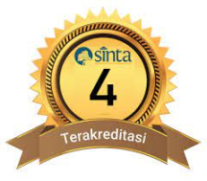META-ANALYSIS OF THE EFFECT OF USING PROBLEM SOLVING MODELS ON HIGH SCHOOL PHYSICS LEARNING ON STUDENT LEARNING OUTCOMES
Abstract
Full Text:
PDFReferences
D. P. Siregar and N. Siregar, “Pengaruh Model Pembelajaran Problem Solving Terhadap Hasil Belajar Siswa Pada Materi Listrik Dinamis di Kelas X SMA Mulia Medan TP. 2012/2013,” J. INPAFI, vol. 2, no. 3, pp. 190–197, 2014.
Depdiknas, “Sistem Pendidikan Nasional,” Republik Indones., 2003.
D. Harefa, “Perbedaan Hasil Belajar Fisika Melalui Model Pembelajaran Problem Posing Dan Problem Solving Pada Siswa Kelas X-MIA SMA Swasta Kampus Telukdalam,” Sinasis, vol. 1, no. 1, pp. 103–116, 2020.
P. A. Alim, “Pengaruh Model Pembelajaran Problem Solving Berbantuan LKS Terhadap Hasil Belajar Siswa Pada Materi Pokok Momentum dan Impuls Kelas X Semester II di SMA Negeri 4 Tebing Tinggi TP. 2016/2017,” J. Penelit. Fis., vol. 6, no. 4, pp. 35–41, 2019, doi: 10.24114/inpafi.v6i4.12484.
R. Sukaisih and M. Muhali, “Meningkatkan Kesadaran Metakognitif Dan Hasil Belajar Siswa Melalui Penerapan Pembelajaran Problem Solving,” Prism. Sains J. Pengkaj. Ilmu dan Pembelajaran Mat. dan IPA IKIP Mataram, vol. 2, no. 1, p. 71, 2014, doi: 10.33394/j-ps.v2i1.803.
K. A. Sutrisno, E. Swistoro, and R. Medriati, “Pengaruh Model Problem Solving terhadap Kemampuan Penalaran dan Hasil Belajar Fisika di Kelas XI MAN 1 Kepahiang,” J. Kumparan Fis., vol. 1, no. 3, pp. 45–50, 2018, doi: 10.33369/jkf.1.3.45-50.
T. Tampubolon and S. F. Sintindaon, “Pengaruh Model Pembelajaran Problem Solving Terhadap Hasil Belajar Siswa Kelas X SMA Negeri 7 Medan,” J. INPAFI, vol. 1, no. 3, pp. 260–268, 2013.
B. Bota, P. N. Mole, and A. Elizabeth, “Pengaruh Model Pembelajaran Problem Solving Berbasis Demonstrasi Terhadap Hasil Belajar Peserta Didik Pada Materi Usaha dan Energi,” J. Pendidik. Fis. dan Sains, vol. 2, no. 1, 2021, [Online]. Available: http://intelligentes.nusanipa.ac.id/index.php/intelligentes/article/view/16.
T. Veronica, E. Swistoro, and D. Hamdani, “Pengaruh Pembelajaran dengan Model Problem Solving Fisika terhadap Hasil Belajar dan Kemampuan Pemecahan Masalah Fisika Siswa Kelas XI IPA SMAN 1 Lebong,” J. Kumparan Fis., vol. 1, no. 2, pp. 31–39, 2018, doi: 10.33369/jkf.1.2.31-39.
PuspendikKemendikbuk.
P. S. Mariati, M. T. Betty, and S. Sehat, “the Problem Solving Learning Model By Using Video Recording on Experiments of Kinematics and Dynamics To Improve the Students Cognition and Metacognition,” J. Pendidik. Fis. Indones., vol. 13, no. 1, pp. 25–32, 2017, doi: 10.15294/jpfi.v13i1.10154
S. Daryanti, I. Sakti, and D. Hamdani, “Pengaruh Pembelajaran Model Problem Solving Berorientasi Higher Order Thinking Skills Terhadap Hasil Belajar Fisika Dan Kemampuan Pemecahan Masalah,” J. Kumparan Fis., vol. 2, no. 2, pp. 65–72, 2019, doi: 10.33369/jkf.2.2.65-72.
S. Suherman, “Meningkatkan Hasil Belajar Siswa Dengan Menggunakan Model Pembelajaran Problem Solving Berbasis Eksperimen Dalam Pembelajaran Fisika,” J. Pendidik. Fis., vol. 2, no. 2, pp. 57–64, 2013.
Borg, W, “Educational Research : An Introduction, fifth edition”. New York: Longnam.1983.
Sugiyono, “Metode Penelitian Kuantitatif Kualitatif dan R&D”. Alfabeta: Bandung.2012.
A. D. Putri and W. S. Dewi, “Meta Analysis Of The Effect Of Using Student Worksheets On Aspects Of Knowledge In High School Physics Learning,” vol. 14, no. 3, pp. 213–219, 2021.
DOI: http://dx.doi.org/10.24036/13736171074








